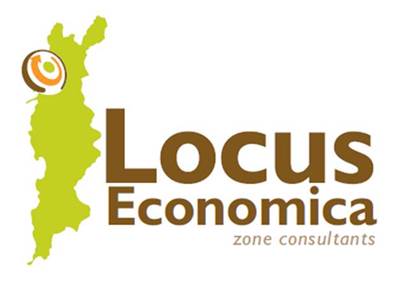Locus Economica had the privilege of advising on the UN Food and Agriculture Organization's Territorial Tools for Agro-Industry Development: A Source Book, released in 2017. Locus was brought into the project as partners with J.E. Austin Associates.
The Sourcebook is a handy resource on tools for promoting the agriculture industry, especially territorial planning projects like economic corridors, clusters, industrial parks, incubators, and special economic zones (SEZs). The book asserts that geography plays an outsized role in generating investment in agriculture, especially through local supply links that are supported by an enabling environment and facilitated approaches by government and the business community.
Locus Founder and CEO Jean-Paul Gauthier provided insights on SEZs focused on agribusiness. SEZs are policy instruments aimed to attract investment, create jobs, and diversify the economy through streamlined regulatory environments, secure land tenure, duty-free imports, dedicated infrastructure, access to specialized services, and cluster effects. When used to attract agribusiness, they typically must be large enough to offer strong supply chains by co-locating production, processing, and related service businesses in the same SEZ. They can also offer specialized services such as finance, logistics, and certification. Botswana, for instance, is creating SEZs designed to help agribusinesses access South African and EU markets by assisting with compliance with horticulture and beef standards
Jean Paul also explained that SEZs should generally impose competitive tax rates to ensure the zones are fiscally responsible. However, taxation should primarily be in the form of direct taxes (i.e., corporate income tax and individual income tax) and value-added tax (VAT). Products sold from the domestic market to the SEZs should be zero-rated for VAT purposes and foreign products should be exempt from customs duties. Customs duty exemptions in SEZs can be valuable incentives for agribusinesses that need to access inputs like feedstock, high-yield seed varieties, chemicals, fertilizers, and capital equipment, and they generally result in no revenue loss for the government.
Jean-Paul also contributed insights on single-enterprise SEZs, international trade law compliance considerations, and public-private partnership structures for SEZs. We encourage the read!

